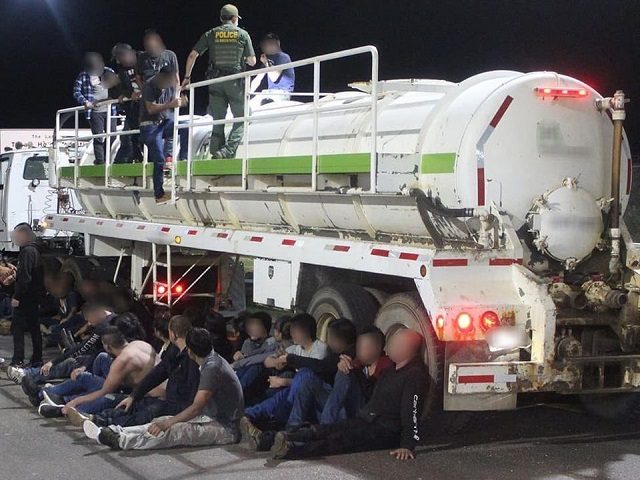U.S. authorities recently launched an effort to prevent companies implicated in trafficking illegal migrants into the United States from renewing or obtaining insurance policies for their “commercial enterprises,” a top American official testified Tuesday.
In written testimony, Francis Russo, a top Customs and Border Protection (CBP) official, told a House panel his agency is suspending and debarring the insurance agencies or individuals linked to human trafficking.
Russo, the acting deputy executive assistant commissioner for operations support at CBP, a component of the Department of Homeland Security (DHS), wrote:
The government-wide suspension and debarment system exists to protect the public interest, the public’s money, and the integrity of Federal programs by ensuring that Federal agencies only conduct business with presently responsible persons.
He did not say what happens to the companies affiliated with the trafficking migrants into the U.S.
Russo revealed the CBP joined forces with a non-profit insurance crimes watchdog that uses its extensive resources and skills to work with law enforcement.
He added that the joint effort complements Operation Sentinel, a recently announced DHS-led multi-agency effort focused on combating Transnational Criminal Organizations (TCOs) affiliated with migrant smuggling, such as cartels in Latin America.
According to Russo, CBP partnered with the National Insurance Crime Bureau (NICB), a network of more than 1,200 member companies, including 80 percent of the nation’s property-casualty insurance agencies.
“The NICB is the insurance industry’s premier association dedicated to predicting, preventing, and prosecuting insurance crime,” Russo wrote.
Once CBP determines which company or individual to suspend or debar, NICB informs its member companies, essentially blacklisting the insurers.
“Following CBP’s determination to suspend or debar a particular company or individual, NICB will inform their members of the suspended or debarred entity,” Russo explained.
Led by CBP, Operation Sentinel is a joint effort with Immigration and Customs Enforcement’s (ICE) Homeland Security Investigations (HSI), U.S. Citizenship and Immigration Services (USCIS), the Department of State, the FBI, and DEA.
DHS oversees ICE and USCIS, while the FBI and DEA operate under the Department of Justice.
Russo pointed out:
Partners in Operation Sentinel are targeting all personnel and identifiable resources that TCOs require to operate. One of the main lines of effort for Operation Sentinel is to target and disrupt those individuals responsible for sending structured payments for human smuggling, which may include proceeds from illicit drugs.
Utilizing the full breadth of domestic and foreign authorities, data, analytic capability, and capacity, Operation Sentinel is mapping the organizations’ networks; targeting their members, associates, and assets; and employing a series of targeted actions and sanctions against them.
Some of those actions include revoking travel documents, suspending and debarring companies, and freezing bank accounts or other financial assets tied to the TCO logistical network.
“TCOs pose a significant threat to both national security and to public safety,” Russo warned.
“It is estimated that TCOs profit anywhere between $200 million and $2.3 billion alone for smuggling migrants from the Northern Triangle to the Southwest border,” he added.
The Biden Administration is struggling to deal with the ongoing border crisis fueled by a surge of migrants that has hit record highs in recent months.

COMMENTS
Please let us know if you're having issues with commenting.